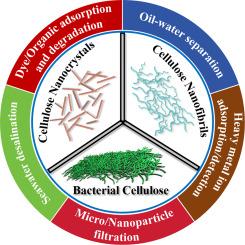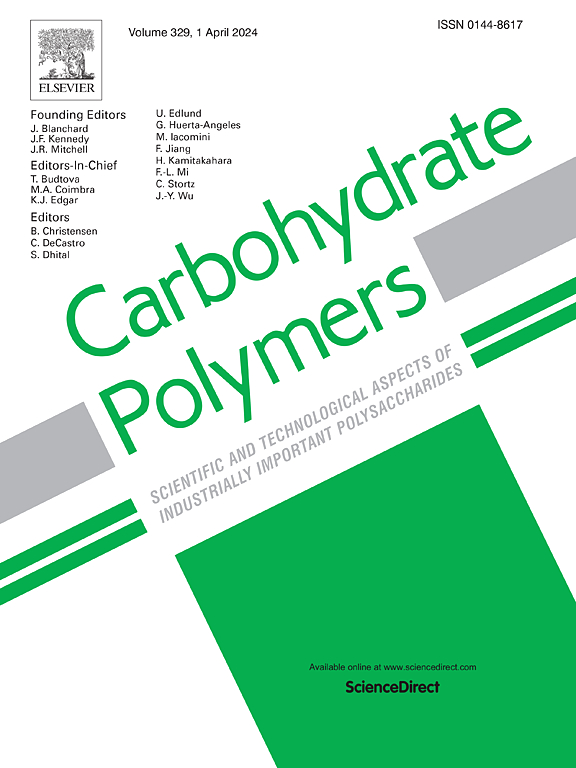基于纳米纤维素的水处理功能材料
IF 10.7
1区 化学
Q1 CHEMISTRY, APPLIED
引用次数: 0
摘要
水资源是人类赖以生存的重要生态资源。迄今为止,由于环境的持续恶化和淡水资源的严重短缺,先进的净水技术已成为全球关注的焦点之一。近年来,纳米纤维素作为一种可持续的碳中性生物聚合物,不仅具有纤维素的特性,还具有纳米材料的重要性质,包括大比表面积、可定制的表面化学性质、优异的机械柔韧性、生物可降解性和环境兼容性。本文综述了纳米纤维素的几种提取和制备方法以及功能改性策略。随后,我们系统回顾了纳米纤维素功能材料在水处理领域的应用和最新研究进展,包括微/纳米颗粒过滤、染料/有机物吸附/降解、重金属离子吸附/检测、油水分离以及海水淡化等。此外,还讨论了可扩展和低成本的纳米纤维素合成策略。最后,简要讨论了纳米纤维素水净化基质在工业应用中的挑战和机遇以及新兴方向。本综述有望为基于纳米纤维素的先进功能材料在水处理和环境修复领域的应用提供新的见解,促进学科交叉的快速发展。本文章由计算机程序翻译,如有差异,请以英文原文为准。

Nanocellulose-based functional materials towards water treatment
Water resources are important ecological resources for human survival. To date, advanced water purification technology has become one of the focus of global attention due to the continuous deterioration of the environment and the serious shortage of freshwater resources. Recently, nanocellulose, as a kind of sustainable and carbon-neutral biopolymer, has not only the properties of cellulose, but also the important nature of nanomaterials, including large specific surface area, tailorable surface chemistry, excellent mechanical flexibility, biodegradability, and environmental compatibility. Herein, this review covers several methods of extraction and preparation of nanocellulose and the functional modification strategies. Subsequently, we systematically review the application and latest research progress of nanocellulose-based functional material towards water treatment, from micro/nanoparticles filtration, dyes/organics adsorption/degradation, heavy metal ions adsorption/detection and oil-water separation to seawater desalination. Furthermore, scalable and low-cost nanocellulose synthesis strategies are discussed. Finally, the challenges and opportunities of nanocellulose water purification substrate in industrial application and emerging directions are briefly discussed. This review is expected to provide new insights for the application of advanced functional materials based on nanocellulose in water treatment and environmental remediation, and promote rapid cross-disciplinary development.
求助全文
通过发布文献求助,成功后即可免费获取论文全文。
去求助
来源期刊

Carbohydrate Polymers
化学-高分子科学
CiteScore
22.40
自引率
8.00%
发文量
1286
审稿时长
47 days
期刊介绍:
Carbohydrate Polymers stands as a prominent journal in the glycoscience field, dedicated to exploring and harnessing the potential of polysaccharides with applications spanning bioenergy, bioplastics, biomaterials, biorefining, chemistry, drug delivery, food, health, nanotechnology, packaging, paper, pharmaceuticals, medicine, oil recovery, textiles, tissue engineering, wood, and various aspects of glycoscience.
The journal emphasizes the central role of well-characterized carbohydrate polymers, highlighting their significance as the primary focus rather than a peripheral topic. Each paper must prominently feature at least one named carbohydrate polymer, evident in both citation and title, with a commitment to innovative research that advances scientific knowledge.
 求助内容:
求助内容: 应助结果提醒方式:
应助结果提醒方式:


